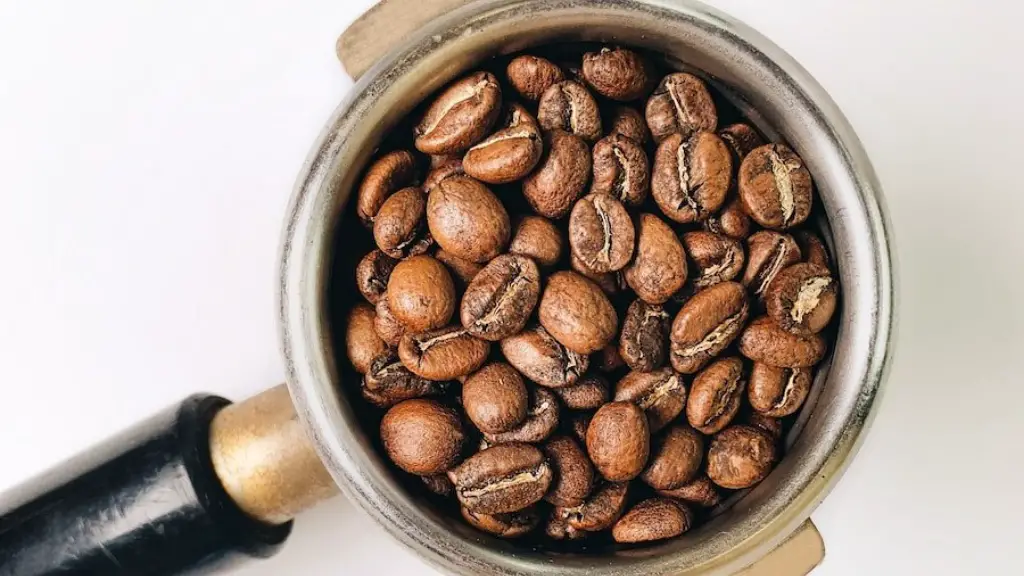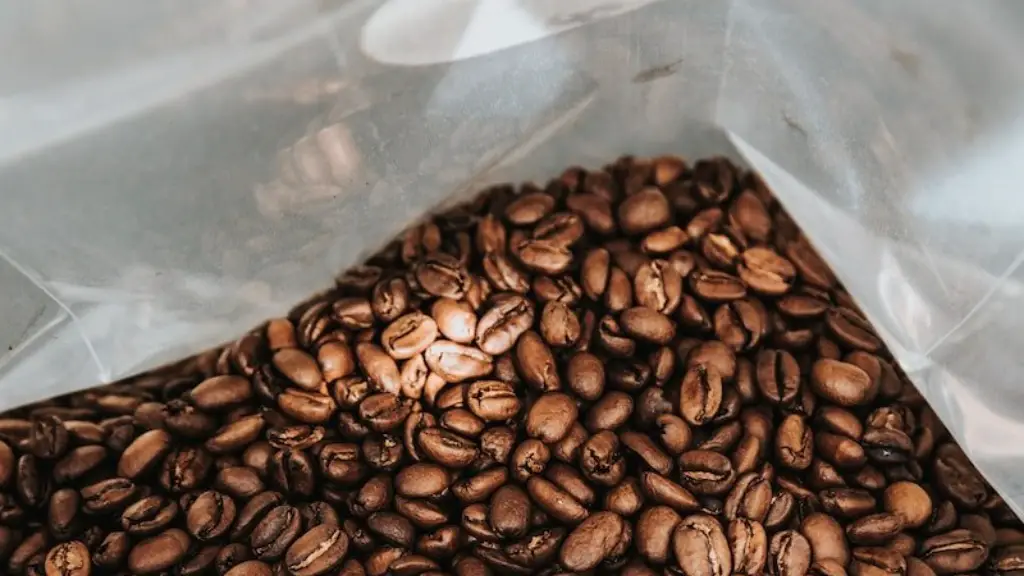Coffee is one of the most widely consumed beverages in the world. Most of us rely on a morning cup of joe to jumpstart our day, as well as multiple cups throughout the day to keep our energy up and stay alert. Lately, there has been an increase in the amount of coffee that people drink in one day, so it is worth asking whether it is possible to drink too much coffee in one day.
Caffeine, the primary ingredient in coffee, is a stimulant that affects the central nervous system. Consuming too much caffeine in any one day, whether from coffee or other sources, can lead to insomnia, irritability, upset stomach, headaches, and jitteriness. Caffeine also has a diuretic effect and may dehydrate the body if overindulged in. Just as with any stimulant, it is important to be conscious of how much you are having and to be aware of the potential risks.
The amount of coffee that is deemed too much and can cause these unpleasant symptoms really varies depending on the individual, their health and physiological conditions, and the amount of caffeine they are consuming. Typically, the Mayo Clinic recommends limiting your daily consumption of caffeine to 400 milligrams, but this is an average baseline and comes with an array of caveats. Pregnant women or those with high blood pressure should have an even lower intake, as should people who may be sensitive to caffeine.
For some individuals, it is possible to drink 600-800 milligrams of caffeine each day without experiencing any negative symptoms. However, this depends on the individual and one should avoid drinking multiple cups of coffee in short succession. If you find yourself drinking multiple cups of coffee, try switching to a tea or decaffeinated coffee instead. Additionally, avoid combining coffee with other stimulants, like energy drinks, as this will only amplify the effects of the stimulants and increase your risk for experiencing unpleasant side effects.
It is recommended to never exceed 1,000 milligrams of caffeine in one day, as that can lead to serious health complications. To get an idea of how much caffeine is in each type of coffee, a regular 8-oz cup of coffee contains 95 milligrams, while an espresso or frappuccino can contain up to 160 milligrams of caffeine.
In conclusion, it is possible to drink too much coffee in one day, and the amount that many consider safe varies depending on the individual and their caffeine sensitivity. To stay safe, limit your coffee consumption to 400 milligrams of caffeine per day. Choose alternative drinks if you find yourself drinking multiple cups of coffee in a day, and avoid combining coffee with other stimulants.
What Happens When You Overindulge in Coffee
When individuals overindulge in coffee, it can lead to an increase in their heart rate and blood pressure. Moreover, it can increase the production of stress hormones, like cortisol and adrenaline, which can further increase the risk for heart attack and stroke. Additionally, it can interfere with the absorption of essential vitamins and minerals, leading to deficiencies.
Overindulging in coffee can also cause anxiety, particularly in those who are prone to the condition. This can further heighten the effects of stress on the body, leading to poor quality of sleep, fatigue, irritability, and digestive issues. This can also exacerbate existing mental health conditions like depression.
Consuming too much coffee in one day can lead to dehydration, as it is a diuretic. This can cause headache, dizziness, and fatigue. It can also cause severe sleep deprivation and impair cognitive function. Additionally, drinking too much coffee can make it difficult for the body to maintain a healthy balance of electrolytes, which can cause severe health complications.
Furthermore, excessive coffee consumption can lead to an imbalance in the body’s natural hormones, leading to menstrual irregularities and fertility issues. This can have long-term effects, so it is important to monitor your coffee consumption if you are planning to conceive or if you have a family history of hormone-related health conditions.
Tips To Reduce Your Intake of Coffee
If you are looking to reduce your caffeine intake, the best way to do so is to gradually reduce your intake in order to avoid caffeine withdrawal symptoms. Start by setting yourself a daily limit and gradually reducing it until you find an amount that is comfortable for you. Alternatively, swap out regular coffee for decaffeinated coffee and limit your cups to one or two per day.
You can also try reducing the amount of added sugar and cream you put into your coffee, as these can be sources of hidden calories. Additionally, consider replacing your cup of coffee with water, herbal tea, or a smoothie to provide you with additional nutrients and help you stay hydrated.
Herbal teas are a great option for those who want to reduce their caffeine intake, as they contain a different blend of antioxidants and are free of caffeine. Moreover, herbal teas can help to relax the body and provide numerous health benefits, so you can still benefit from the health benefits of coffee without the effects of caffeine.
Alternatively, if you are looking to have a cup or two of coffee per day without consuming too much caffeine, consider espresso or americano instead of regular drip coffee. Or, you can try drinking cold brew coffee, as it generally contains less caffeine than regular coffee. That being said, it is important to be mindful of your daily caffeine intake no matter what type of coffee you choose.
How Coffee Can Benefit Your Health
Despite the potential risks associated with excessive coffee consumption, there are numerous health benefits associated with drinking coffee. Studies have shown that drinking one to two cups of coffee each day can lead to a decreased risk of developing diseases such as type 2 diabetes, stroke, and liver cancer. It can also help to prevent cognitive decline as we age, improve exercise performance, reduce inflammation, and boost the immune system.
The antioxidants found in coffee, such as polyphenols, can help to protect the body from free radical damage and reduce the risk of certain cancers. Coffee has also been linked to a decreased risk of depression and Alzheimer’s disease. Additionally, coffee can help to increase energy and concentration levels, allowing you to stay focused throughout the day.
Coffee has also been linked to a decreased risk of heart disease and stroke. Studies have suggested that consuming up to six cups of coffee per day is associated with a lower risk of heart disease and stroke. However, it is important to note that the further effects of drinking more than six cups of coffee are largely unknown, so it is still important to keep an eye on your intake.
Finally, it is important to note that the health benefits of coffee vary from person to person, so it is important to consume it in moderation and speak with your doctor for personalized advice.
The Best Way To Brew Quality Coffee
To get the most out of your coffee and ensure that you get the best tasting cup possible, it is important to pay attention to how you are brewing it. Generally, fresh, top-notch coffee beans are the best way to start, as stale beans can lead to a bad cup of coffee. Additionally, always make sure to use clean, fresh water. The quality of the water affects the flavor, so it is important to invest in filtered or distilled water.
The brewing temperature is also vital to consider, as water that is too hot will scorch and scald the coffee, while water that is too cold will fail to extract the essential oils and flavors from the beans. The optimal temperature for brewing coffee is between 195-205°F. Additionally, it is important to use the correct grind size for your brewing method, as fine grounds work best for espresso and coarse grounds work best for filter coffee.
Finally, the amount of time that you steep the grounds is important to consider. Typically, the general rule of thumb is 2-4 minutes, depending on the brewing method. If the grounds are steeped for too long, it can lead to a bitter, over-brewed cup of coffee. On the other hand, if the grounds are steeped for too briefly, it will lack the richness, complexity, and full body that you expect from a great cup of coffee.
Health Benefits of Coffee Alternatives
For those who want to reduce their caffeine intake or seek out other sources of health benefits, there is a wide range of coffee alternatives on the market, with each providing its own unique benefits. Herbal teas, like chamomile and valerian, can help to reduce stress and induce relaxation. Moreover, tisanes, like rooibos tea, contain antioxidants and can even help to reduce inflammation.
Matcha is another coffee alternative that contains high levels of antioxidants, providing numerous health benefits. It can help to increase energy levels and boost concentration and alertness, without the caffeine associated with coffee. It can also help to regulate blood sugar levels and improve heart health, as well as having beneficial effects on skin and hair.
Yerba mate is a popular coffee alternative, providing many of the same health benefits as coffee, without the caffeine. It is rich in antioxidants, and can help to improve cognitive function and reduce inflammation. Additionally, it can help to boost metabolism and increase energy levels, making it ideal for those who are looking to lose a few pounds.
Finally, chicory coffee is a great option if you are looking to decrease your caffeine intake. It is made from the root of the chicory plant, and contains prebiotic fibers that can promote better gut health. It is also a great source of vitamin B6, which can help to improve mood and cognitive function.





